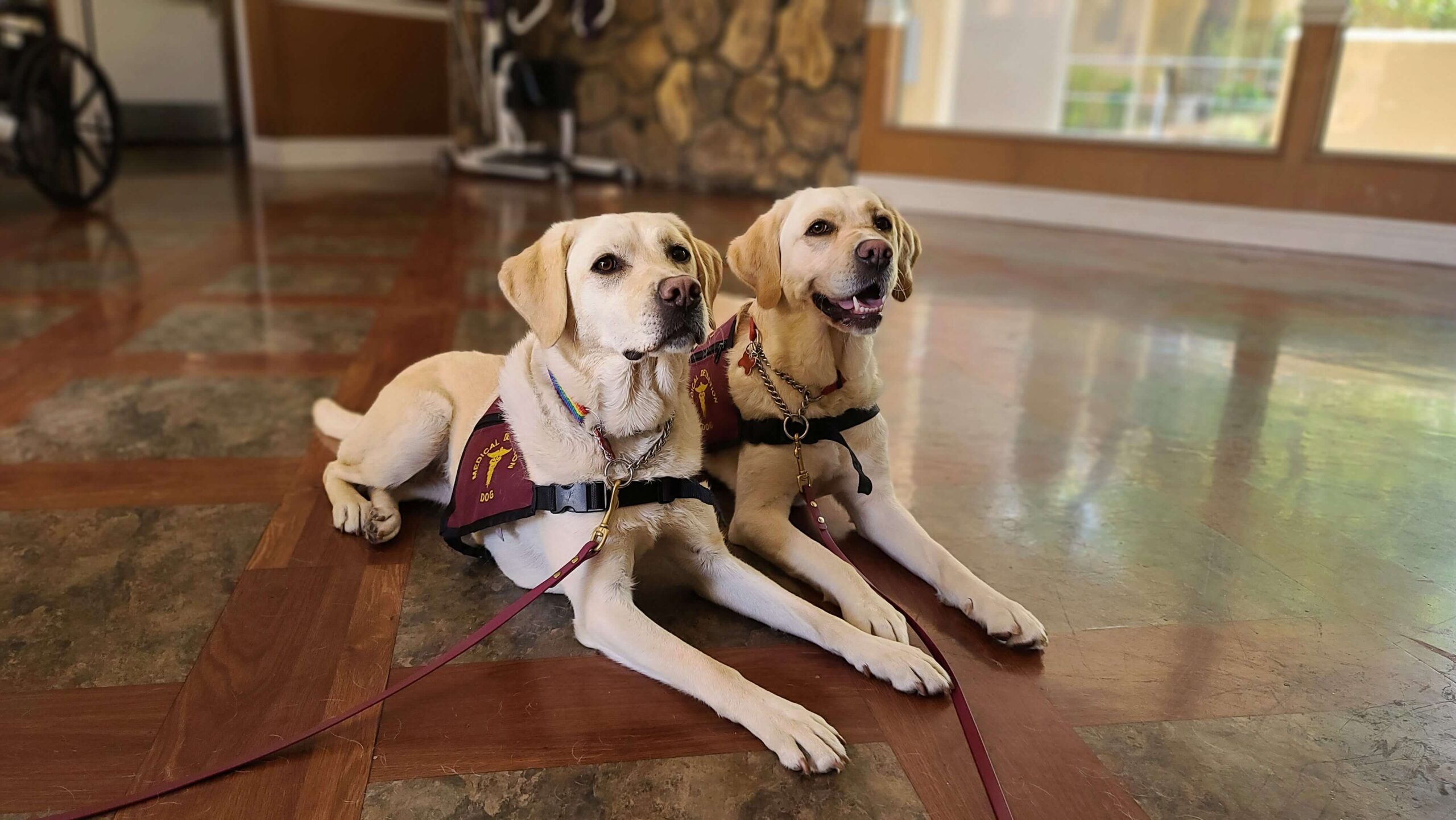Dogs can be people’s pets, but they can be working dogs, too. People train dogs for various reasons, such as police dogs, airport screening dogs, and medical detection dogs, to name a few. Early Alert Canines (EAC) is a non-profit specializing in training dogs to work with people with diabetes. Since COVID, they leveraged their expertise in training Medical Detection Dogs to develop a new pilot program of training dogs to detect people with COVID.
Where is the COVID canine program located?
The groundbreaking pilot program is in the Bay Area. Since 2021, in collaboration with the California Department of Public Health (CDPH), Early Alert Canines has trained and deployed two exceptional yellow labs, Rizzo and Scarlett, to detect volatile organic compounds (VOCs) emitted by individuals who are COVID-positive. A partnership with Bay PLS allows the Team to provide Antigen testing (in addition to the dog’s Sniff tests) to all participants serving Contra Costa, San Mateo, Marin, Sonoma, Alameda, San Francisco, and Solano counties.
How does it work?
Early Alert Canines is revolutionizing COVID testing with scent-trained medical alert dogs Scarlett and Rizzo. To ensure accurate results, the experts at BayPLS administer nasal swab tests to all participants and provide education as needed. EAC provides essential testing services to vulnerable individuals in various care settings such as hospitals, skilled nursing facilities, schools, etc. Beyond their detection abilities, Scarlett and Rizzo also bring comfort, companionship, and smiles to those they visit, fostering a sense of hope and connection during these challenging times.
What is the cost?
The COVID canine program is free to various facilities throughout the Bay Area until May 2024. To determine if you qualify and learn more, schedule a Zoom meeting.
Can you tell me more about Early Alert Canines (EAC)?
EAC is a non-profit organization that trains medical detection dogs. Through partnerships with certified blood sugar alert dogs, they enhance the health, safety, and well-being of individuals with insulin-dependent, life-threatening diabetes. Additionally, they advance public health by training and deploying dogs to detect other diseases.
EAC could only be around with volunteers, donations, and grants. Volunteers include working at EAC with administrative support, dog grooming or walking, raising a puppy, fostering a dog, facility maintenance, photography, videography, community ambassador, or outreach. To learn more about EAC, visit their website.
STAGES wants people to know about the various non-profits.

